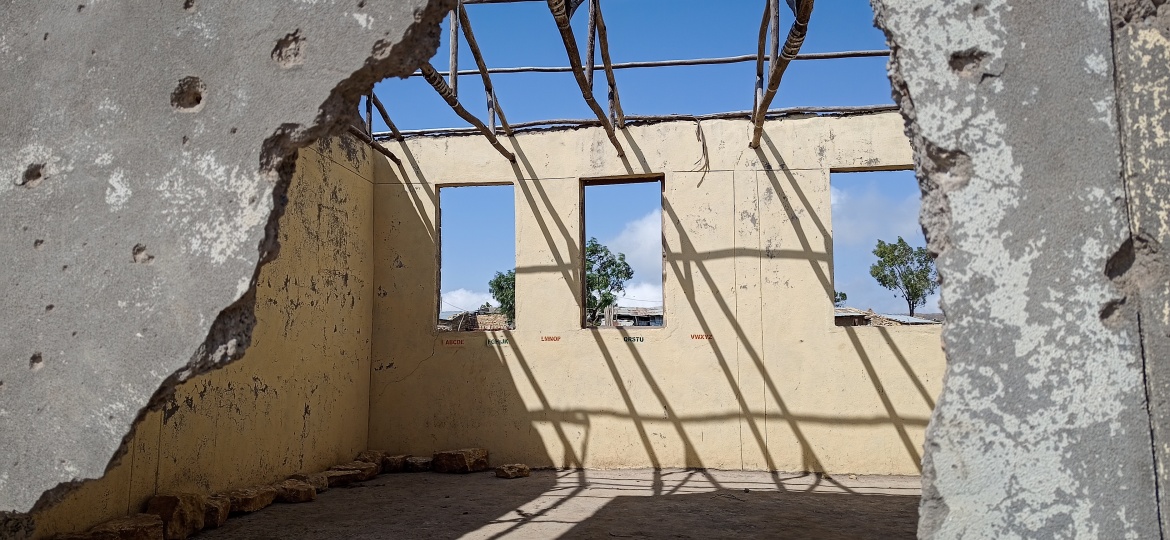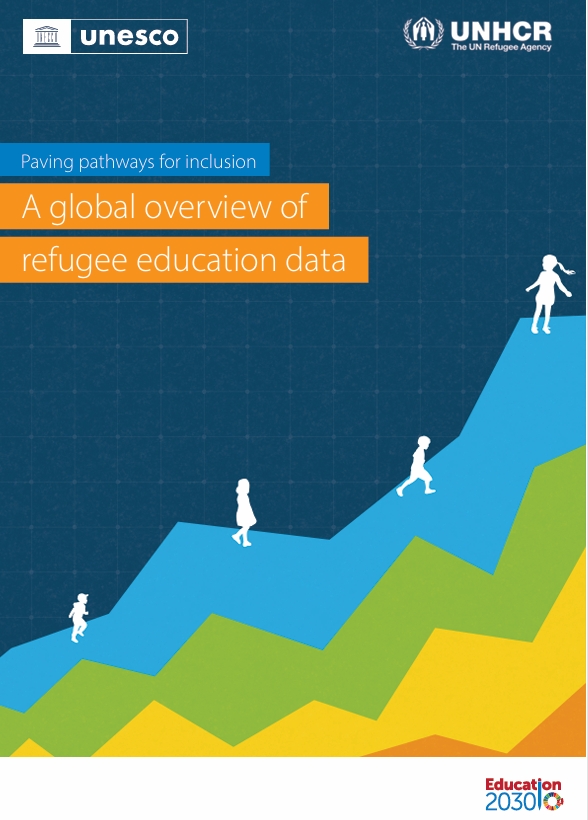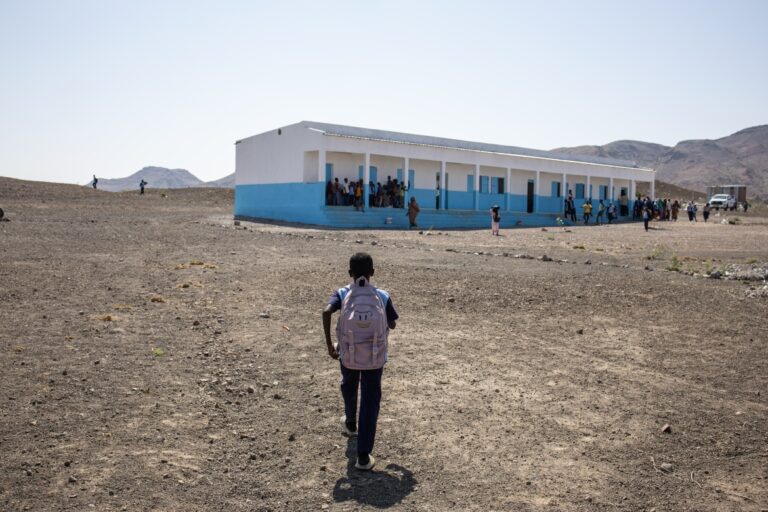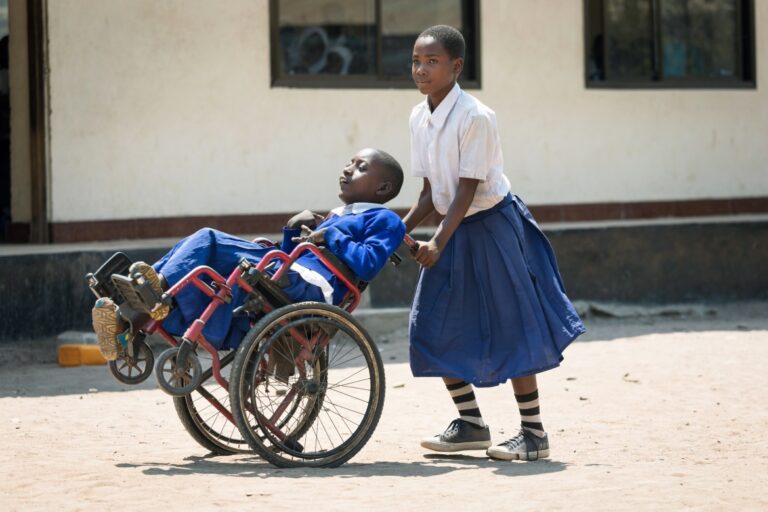On World Humanitarian Day, we turn our focus to the Tigray region of northern Ethiopia, where children have endured devastating consequences of conflict and the upheaval caused by COVID-19. A new independent study commissioned by the Luminos Fund reveals profound learning loss and trauma, reinforcing the urgent need to prioritize education as a humanitarian imperative.Conflict in northern Ethiopia has affected over 20 million people, closed over 7,000 schools and shut almost 1.5 million children out of school, directly on the heels of earlier school closures due to the COVID-19 pandemic.
After three years of being out of school and enduring the traumas of national conflict, children now face a challenging journey to catch up on education. However, Luminos’ accelerated education program shows that every child is capable of learning a remarkable amount in a short period of time, if given the chance.
We have seen this to be true across all our country programs, including in Ethiopia where Luminos is successfully reaching more than 189,768 out-of-school children. In one school year, our program teaches children to read, write and do math.
Following the historic peace agreement in Ethiopia, Luminos returned to the Tigray region and faced an alarming reality: over 1 million people are currently displaced and schools are badly damaged. Both government and civil society shared an urgent call to restart the Luminos program.
Recognizing that the core aspects of the program would need to be customized to the unique needs of children in Tigray, we commissioned an independent study examining the levels of learning loss, trauma and resilience in children, parents and teachers.
Dr. Belay, at Addis Ababa University, led a team of senior researchers from Mekelle University in surveying 600 internally displaced children, 450 parents and 400 teachers. The findings offer the first comprehensive view into the harrowing experiences of children, parents and teachers in Tigray since the start of the COVID-19 pandemic.
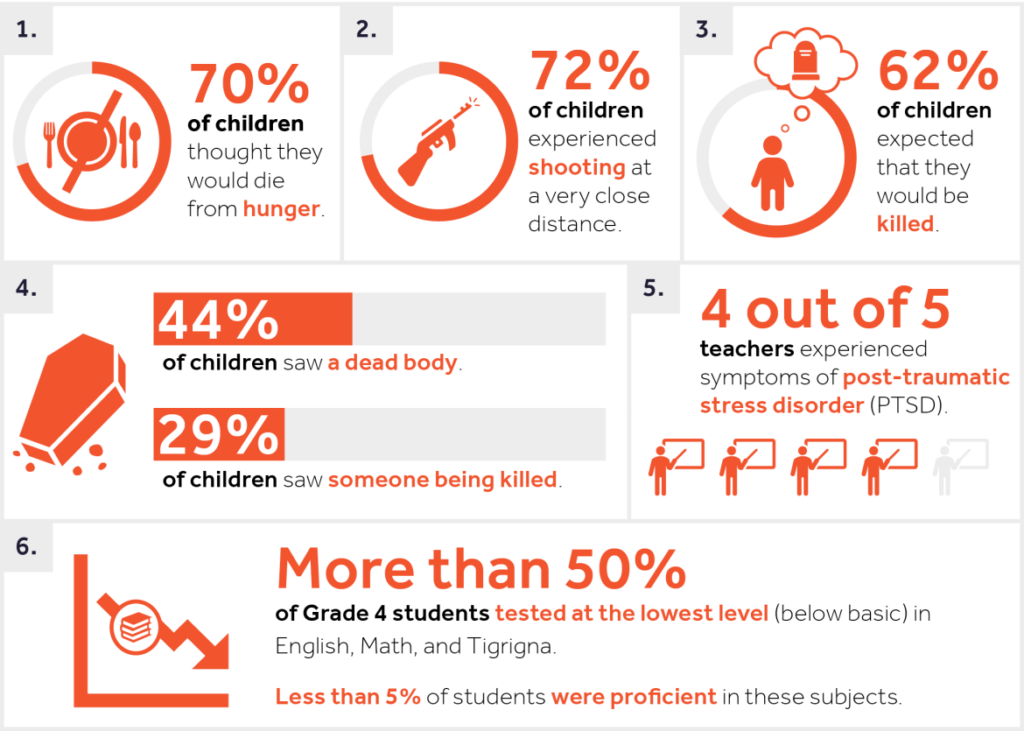
The survey revealed that 70% of children thought they would die of hunger, and 72% of children experienced shooting at a very close distance. Teachers were also deeply affected as 4 out of 5 reported experiencing symptoms of post-traumatic stress disorder.
We also wanted to understand how the context of conflict may also impact learning and foundational skills in primary-school-aged children as we were already concerned about losses caused by education disruptions due to COVID-19.
Children who were enrolled in Grades 2 and 3 at the time of school closures in March 2020 were assessed using the Early Grade Reading Assessment (EGRA) to measure potential learning loss. The results were benchmarked against the regional averages for Grade 2 and 3 students from the 2018 national EGRA, which was the last national EGRA before the conflict to include students from Tigray.
Study findings indicated that Grade 2 students’ oral reading fluency had declined by almost 13%.
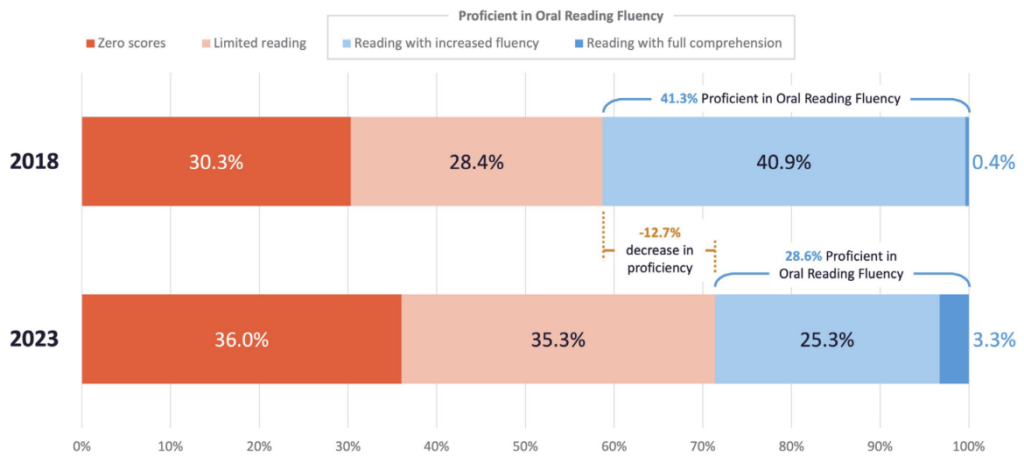
Beyond these alarming findings, the loss incurred by children, not only in terms of losing what they had learned prior to both the conflict and pandemic, but also missing out on school is possibly the greatest setback.
As the region rebuilds, education must be a humanitarian priority as it can be a lifeline to communities offering hope, resilience and a path toward a better future.
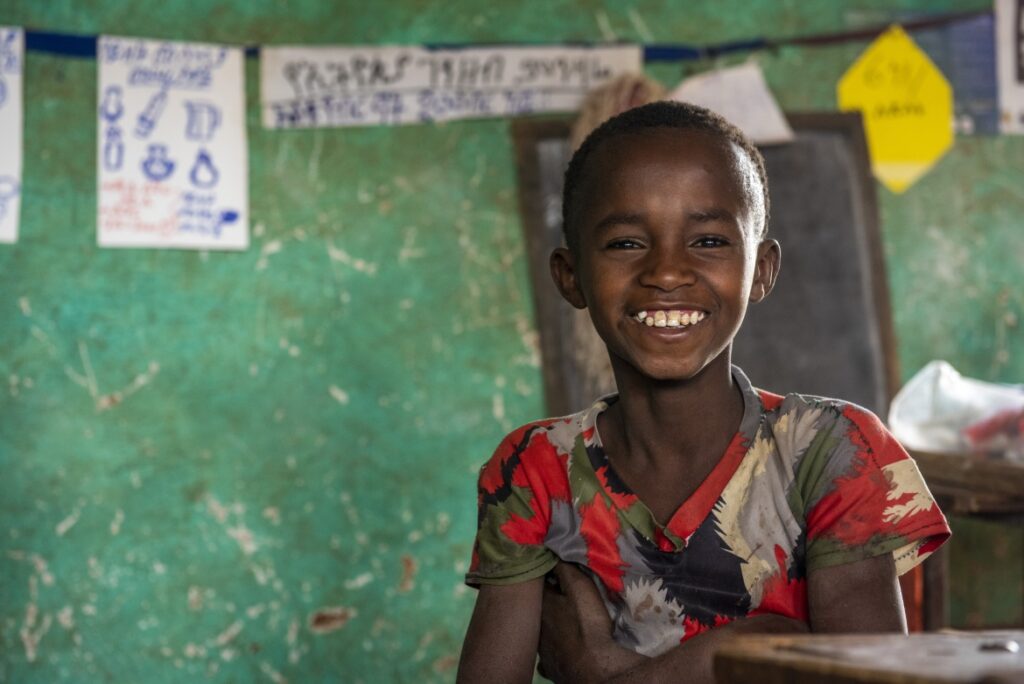
A holistic strategy for school re-opening
Out of almost all children surveyed, 98% expressed their eagerness to return to school.
As Luminos is re-establishing its program in Tigray after 3 years, there are several urgent steps being taken to ensure an effective learning environment that prioritizes trauma healing as an essential component of helping children achieve their full potential.
1. Providing Psychosocial Support Services
At Luminos, we recognize that there is an urgent need for comprehensive psychosocial support services and interventions to address the emotional and psychological needs of children, their families and teachers. These interventions are vital in helping them cope with trauma and creating a conducive learning environment. But we also know that in the context of Tigray, there is a significant shortage of trained professionals capable of delivering such services.
We believe that by equipping community teachers with specialized training and resources, teachers have the potential to serve as a valuable short-term solution in bridging this gap.
2. Mainstreaming Accelerated Learning
Children need and deserve a well-crafted and well-designed accelerated learning program that builds foundational skills within a positive learning environment.
These programs must be customized to the unique needs and context of children to maximize their impact. When we tap into what is culturally relevant for students in a given context and use an activity-based and engaging curriculum, evidence shows that it can boost social-emotional skills. For example, we are adapting our core approach in Tigray to include traditional music, dance, games, poetry and art, and we will invite parents and community leaders into the classroom to play active roles in children’s learning journeys.
3. Developing Strategic Partnerships
The education crisis in Tigray can be reversed, but only if we act together. As Luminos builds strategic partnerships in Tigray and beyond, our collaboration with educators, parents, community-based organizations, funders and government is essential. Partnerships enable us to shape a program that not only responds to the unique context of each region, but also brings forth strategies for meaningful learning recovery and lasting transformation.
Building Hope and Resilience
Looking ahead, we at the Luminos Fund mark World Humanitarian Day with a commitment to ensuring all children have equal access to joyful foundational learning, especially those shut out of education by crisis, poverty or discrimination.
To read the full report summary, including further data on learning loss, trauma and resilience, Full Text

